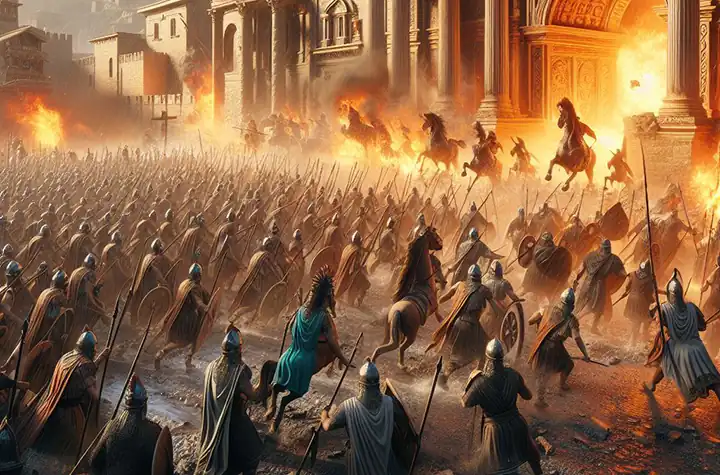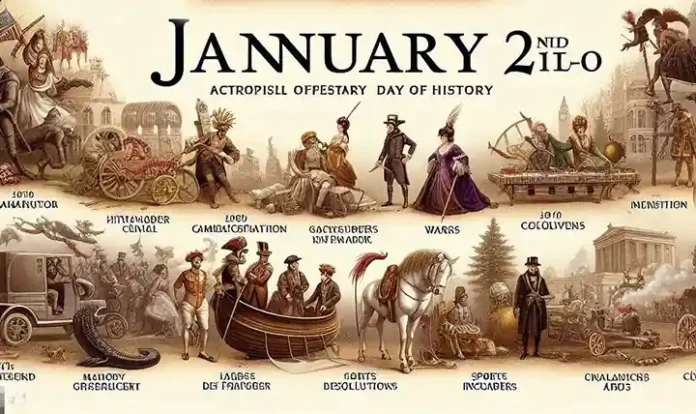Globally Significant:
1492:
Reconquista Concludes: Granada, the last Moorish stronghold in Spain, surrenders to Ferdinand and Isabella, ending centuries of Muslim rule in Iberia. This event significantly reshaped the religious and political landscape of Europe.
1906:
Air Conditioning is Patented: American engineer Willis Carrier patents the world’s first air conditioner, a technological innovation that would revolutionize comfort and living conditions globally.
2004:
Mars Rover lands on Earth’s neighbor: NASA’s Spirit rover successfully lands on Mars, initiating a mission that would gather valuable data and insights about the red planet.
Scientific and Technological Advancements:
1757:
Robert Clive Reclaims Calcutta: British forces led by Robert Clive recaptured Calcutta from the Nawab of Bengal, solidifying British influence in India.
1872:
Yellowstone National Park established: The United States designates Yellowstone National Park as the first national park in the world, pioneering the concept of natural park conservation.
1944:
First Successful Radio Navigation System: The U.S. Navy begins deploying Loran-C, the first successful radio navigation system for ships and aircraft, enabling more precise positioning.
1959:
USSR launches the Luna 1 spacecraft (Mechta), the 1st to leave Earth’s gravity, reach the vicinity of the Moon and to be placed in heliocentric orbit
2019:
First commercial flight with all-female crew: Air India operates the first commercial flight with an all-female crew of pilots and cabin crew, a landmark moment for gender equality in aviation.
Cultural and Political Turning Points:
366:
Roman Empire Invaded: The Alemanni cross the frozen Rhine River in large numbers, invading the Roman Empire and marking a period of instability in ancient Europe.
1978:
Massacre in Multan, Pakistan: Pakistani paramilitary forces open fire on peaceful protesting workers in Multan, marking a tragic event in the country’s history.
1981:
Yorkshire Ripper Arrested: British police forces arrest Peter Sutcliffe, the infamous “Yorkshire Ripper” serial killer, ending a years-long hunt and bringing justice to the victims.
1992:
Bharat Ratna & Padma Vibhushan Awards Established: India institutes the Bharat Ratna and Padma Vibhushan awards, its highest civilian honors, to recognize exceptional service and achievements.
Born on January 2nd:
Isaac Asimov (1920-1992):
Renowned science fiction author and futurist, whose prolific writing and visionary ideas continue to inspire and shape science fiction today.
C.S. Lewis (1898-1963):
Irish-born writer and theologian, best known for his classic children’s series “The Chronicles of Narnia” and his Christian apologetics works.
Galileo Galilei (1564-1642):
Italian astronomer, physicist, and engineer, whose revolutionary observations and theories laid the groundwork for modern astronomy and physics.
Mo Farah (1983-present):
British long-distance runner, renowned for his dominance in the 5,000m and 10,000m races, winning multiple Olympic and World Championship gold medals.
Mary Wollstonecraft (1759-1797):
English writer and philosopher, considered a founder of feminist thought, whose groundbreaking book “A Vindication of the Rights of Woman” advocated for women’s education and equality.

Died on January 2nd:
Martin Luther King Jr. (1929-1968):
American Baptist minister and activist, who became the most visible spokesperson and leader in the civil rights movement from 1955 until his assassination.
Ernst Busch (1900-1989):
German actor, singer, and director, known for his powerful performances and social commentary in theatre and film.
Isadora Duncan (1877-1927):
American dancer and choreographer, considered a pioneer of modern dance, whose free-flowing, expressive style broke away from traditional ballet forms.
C. P. Cavafy (1863-1933):
Greek poet and essayist, whose melancholic verse explored themes of love, loss, and the passage of time, gaining international recognition after his death.
Sir Isaac Newton (1643-1727):
English mathematician, physicist, astronomer, alchemist, theologian, and author, who is widely recognized as one of the most influential scientists of all time, and a key figure in the scientific revolution.


